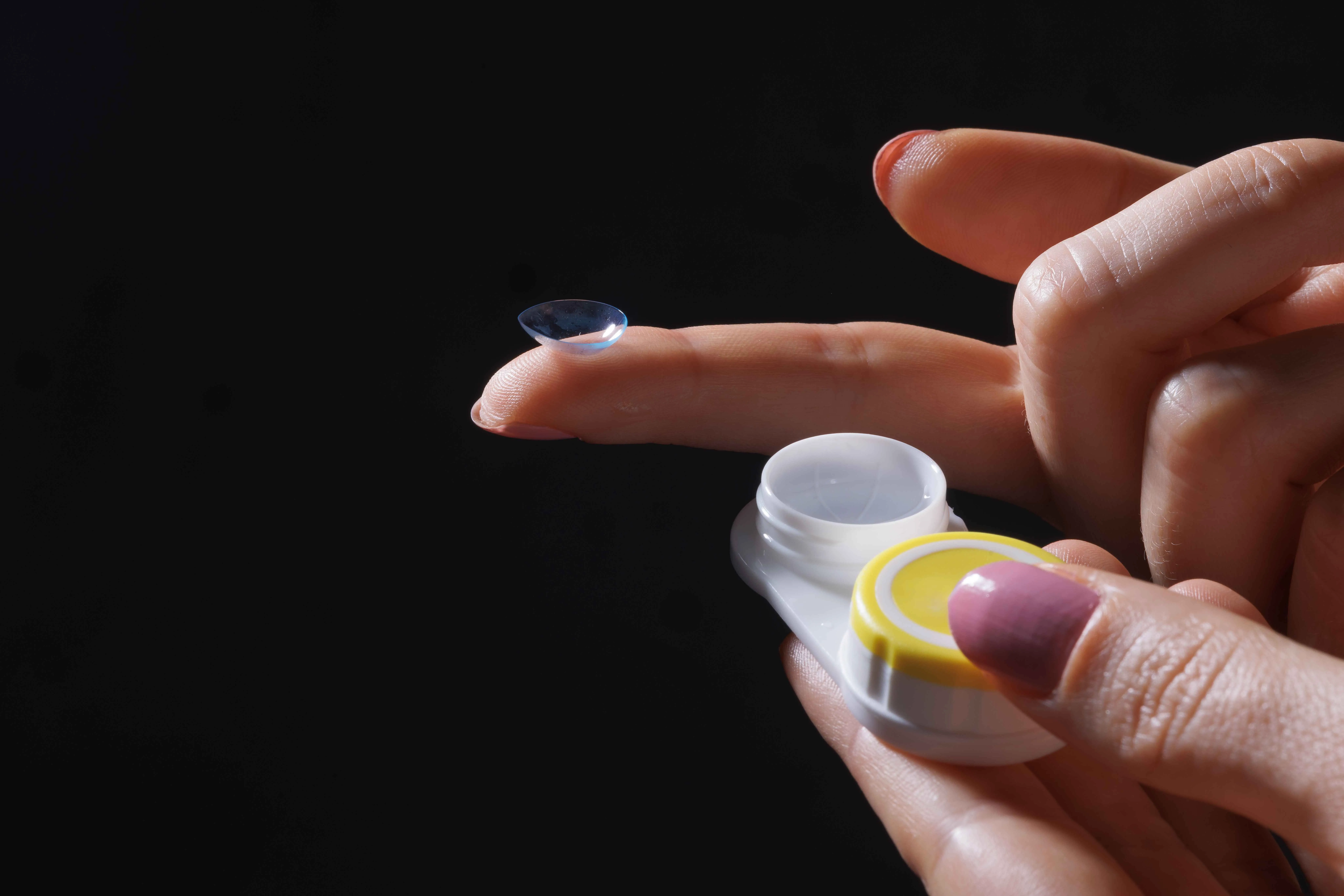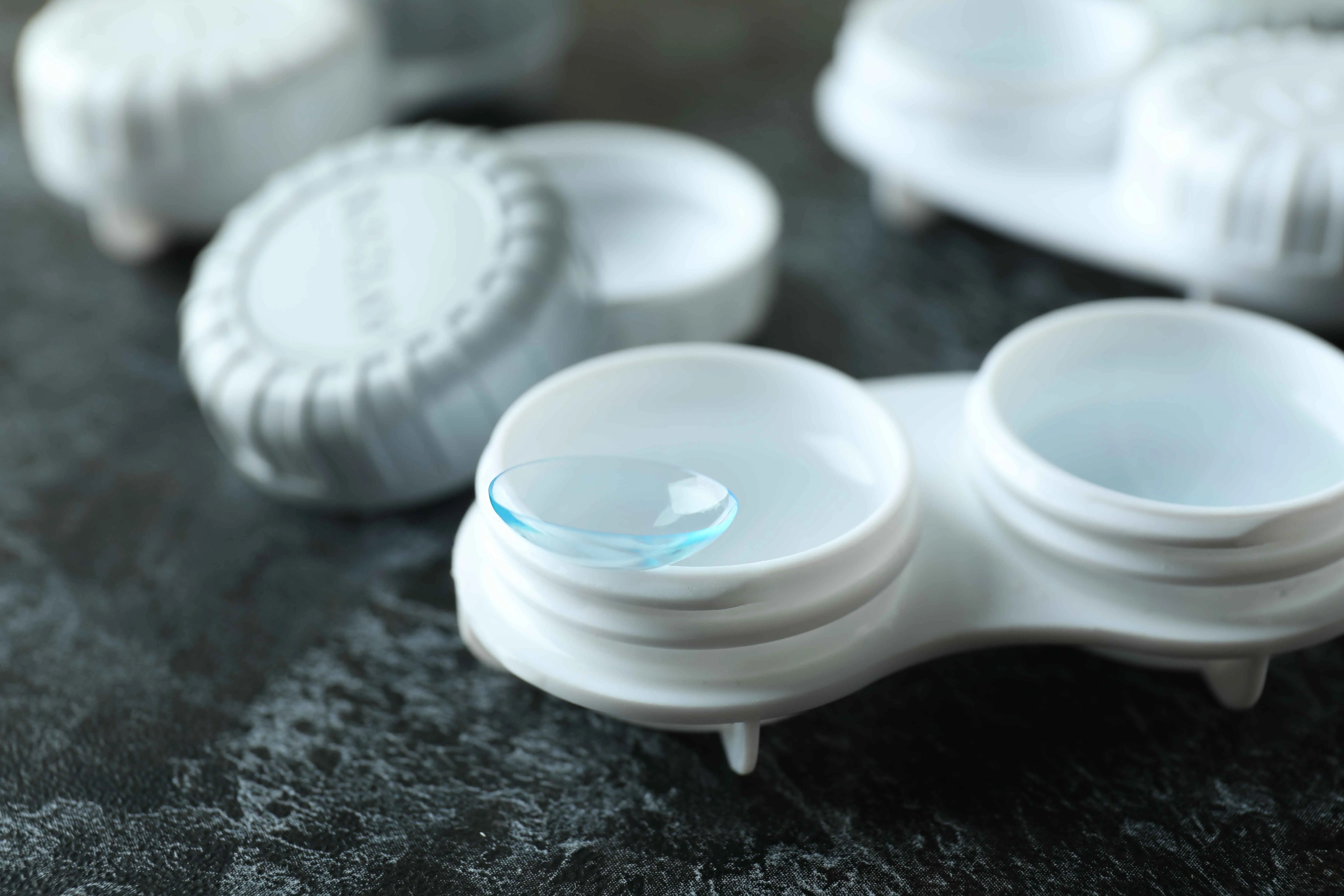As independent optometrists Newby & Padley fit contact lenses from both the leading brands and specialist suppliers.
This enables us to give impartial professional advice on the best lens to suit your lifestyle, prescription and wearing requirements. Advances in lens materials and lens technologies mean today's contact lenses are more comfortable, affordable and can correct a wider range of prescriptions than ever before. Contact lenses are ideal for patients who would like to be free from wearing spectacles, even if just for social and recreational wear.

Patients wishing to try contact lenses for the first time will need an appointment to discuss the lens options available and to try the various options in the eye. Should they wish to proceed, they will need a further appointment to be taught how to insert, remove and care for the lenses. We will ensure you understand what to do before you take the lenses home.
All contact lens wearers should have regular check-ups (aftercare) to ensure that the lenses are still fitting properly, letting enough oxygen through to the eye and are not causing any damage to the surface of the eye. This is often every 6 months and no longer than 12 months between check-ups.

Soft Lenses: made from a hydrogel material which combines a gel like material with varying degrees of water content from 35% to around 70%. They are approx. 14mm in diameter so cover the coloured part of the eye with the edge overlapping onto the white of the eye. Soft lenses are a popular lens option as they are comfortable to wear and quick and easy to adapt to. Modern designs can correct Astigmatism ( with a toric lens) and also varifocal prescriptions. Daily, 2-weekly and monthly disposables are available.
Silicone Hydrogel Lenses: Look and feel like a standard soft hydrogel lens but their advanced silicone material lets more oxygen through to the eye. They are suited to patients who require extended wearing times as well as being suitable for patients who have had problems with standard hydrogels or dry eye symptoms.
Tinted Lenses: These are soft lenses with either an all over tint or an iris pattern printed on the surface of the lens. The most natural effect is achieved where the colour of the eye is enhanced rather than trying to totally change eye colour.Rigid Gas Permeable Lenses (RGP)
Hard Lenses : or rigid gas permeable lenses are smaller than soft lenses. Approximately 9mm in diameter, they are a thin button of transparent plastic and are generally replaced on an annual basis.
RGP lenses : are recommended for eyes where more oxygen is required, to correct higher levels of astigmatism and for certain complex prescriptions, where they are often the only contact lens option. They are possibly the healthiest lens option, but because they are more difficult to adapt to and are initially less comfortable, most patients prefer soft lenses.
Bifocal and multi-focal lenses are available along with toric and bi-toric designs for complex astigmatism.
Newby & Padley fit a number of specialist lenses both on a private basis and on behalf of the hospital eye clinic. These include:
- Rose K Design lenses in both hard and soft materials for correction of Keratoconus.
- Tinted lenses to hide corneal scarring or equalise eyes of differing colour.
- Occlusive lenses with a blacked out pupil to eliminate double vision.
- Hybrid lenses which offer the advantages of both RGP and Soft Lenses. They have an RGP centre, offering excellent vision, even for patients with significant degrees of astigmatism, coupled with a soft peripheral skirt which gives comfort to match even daily soft lenses.